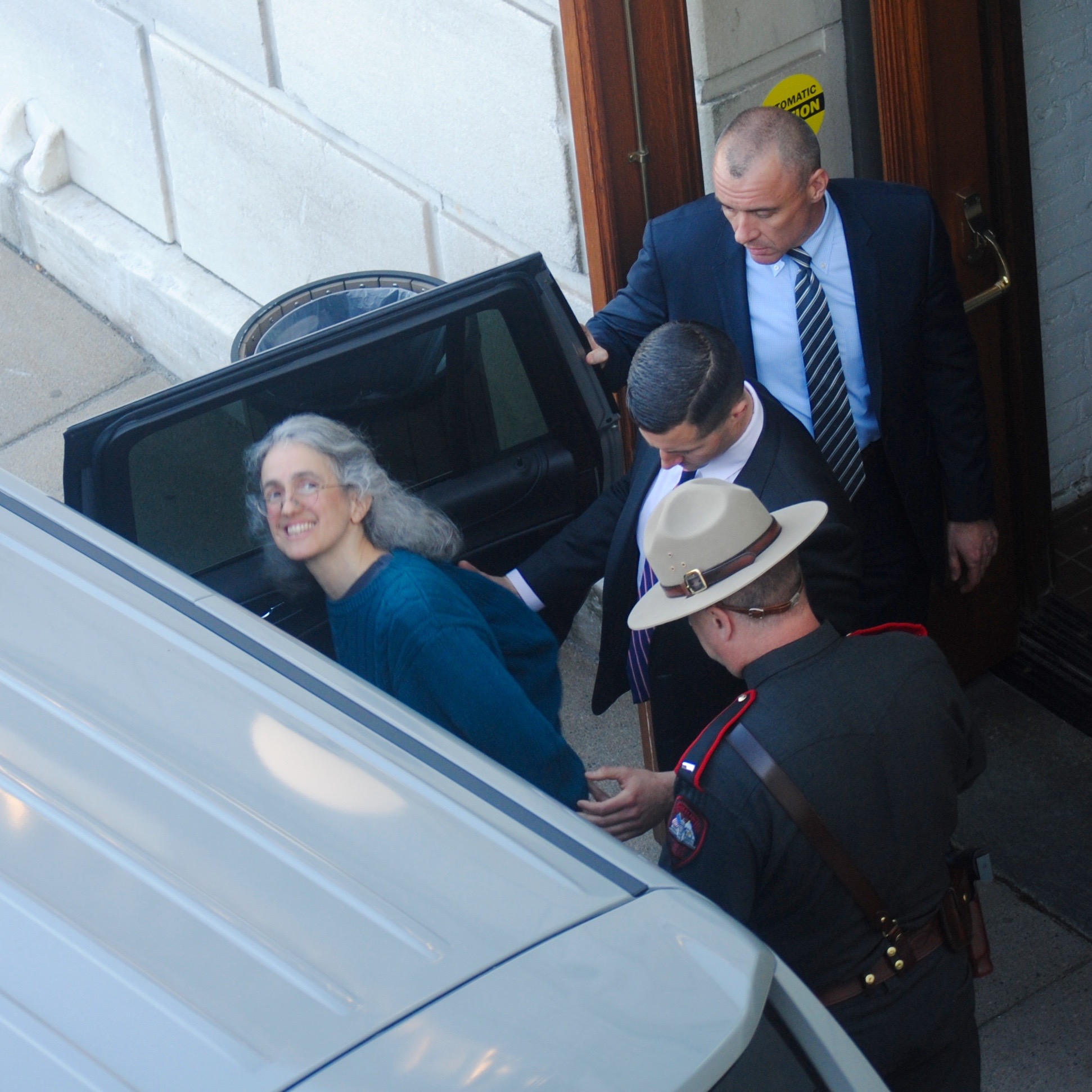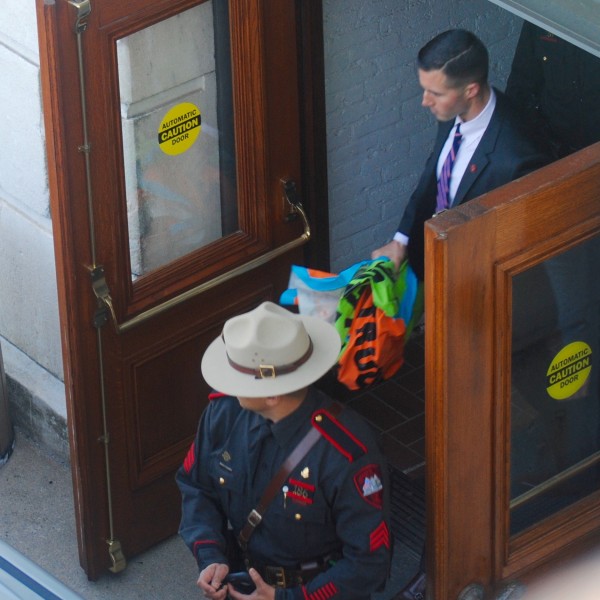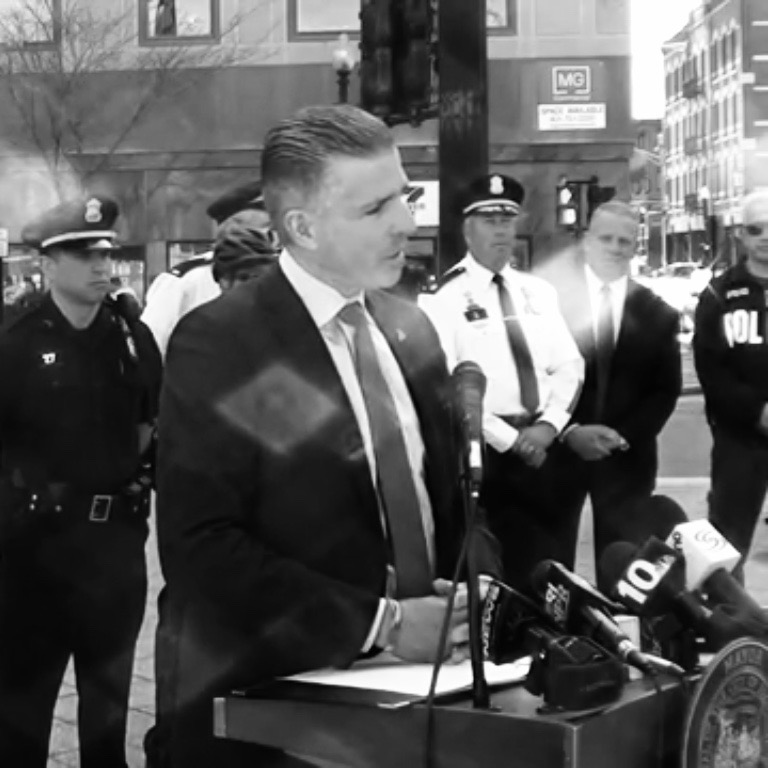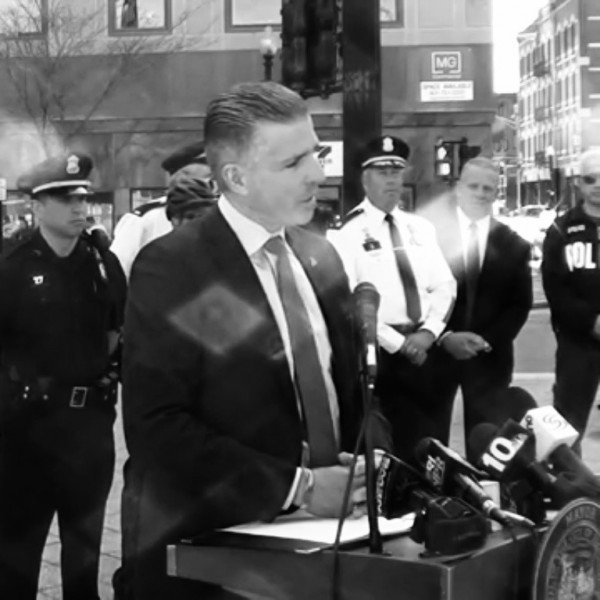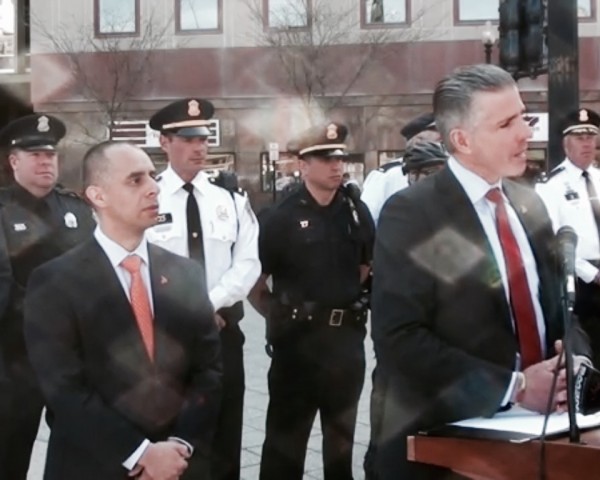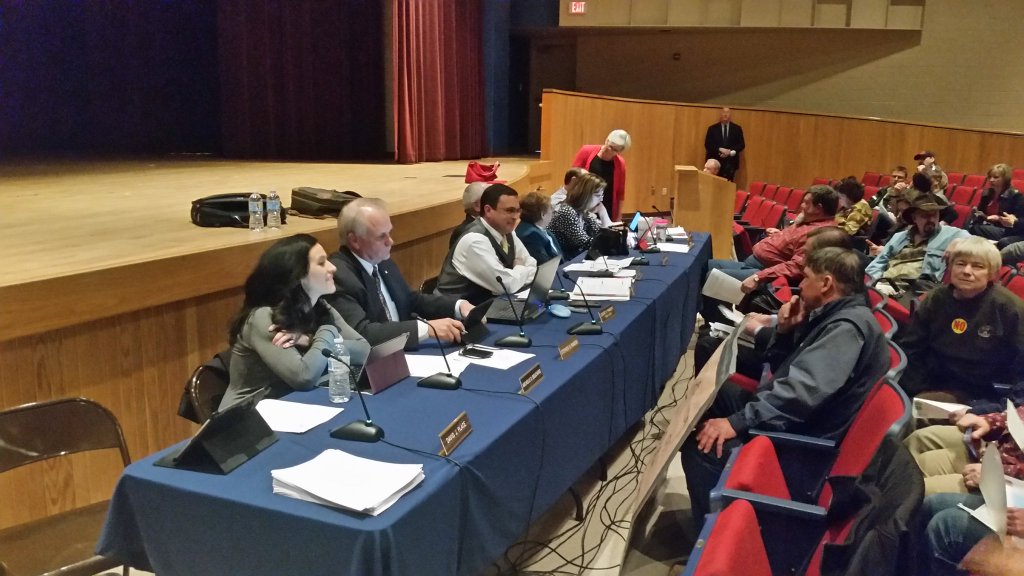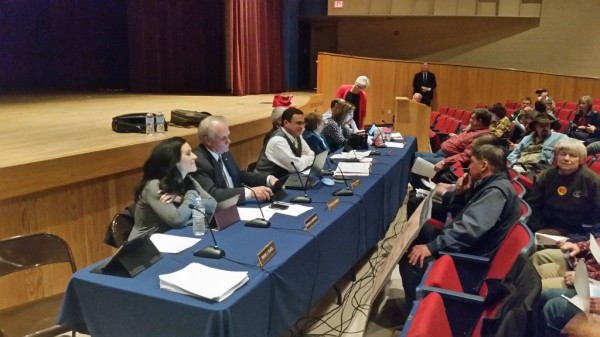 Donald Trump will be holding a rally at 1pm Monday at the Crowne Plaza in Warwick, and some Rhode Islanders hope to shut the rally down. That’s not surprising; Trump likes to attract controversy and is good at doing so. My aim in this article is to argue against trying to shut down the pro-Trump rally.
Donald Trump will be holding a rally at 1pm Monday at the Crowne Plaza in Warwick, and some Rhode Islanders hope to shut the rally down. That’s not surprising; Trump likes to attract controversy and is good at doing so. My aim in this article is to argue against trying to shut down the pro-Trump rally.
I can’t decide for others about what’s a good protest and what isn’t. But I think it’s healthy to start some discussion of the pros and cons. Steve Ahlquist already began the debate last week in an article suggesting that Trump should be shouted down and chased out of the state. I’d like to speak up for the other side. As the discussion goes on, people will make their own decisions, whether it’s to promote the belligerent confrontation that Trump seems to relish or to look for alternative ways of dealing with the situation.
Can disruptive protests be a good thing? I’m sure they can, in the right situations. Take what happened at Brown University in 2013, when Ray Kelly, then the chief of New York City police, was invited to speak. Some Brown students and Providence residents decided to hold a protest then, for several reasons. Kelly had been responsible for a stop-and-frisk program that often turned abusive towards innocent people, particularly people of color. Kelly’s police aggressively worked to disrupt protests against things like the Wall Street bailout. Kelly conducted intensive spying on Muslim communities, considering Muslims as belonging to suspicious “ancestries of interest”, and conducted police operations far outside his legal jurisdiction as part of this effort. But it wasn’t just Kelly’s record that inspired the protest. The protest was also because people were concerned about Brown University’s agenda.
When Brown invited Ray Kelly, they didn’t just invite him to speak. The university gave him an especially honored speaking slot, the annual Krieger Memorial Lecture. Perhaps they thought this was appropriate — his status as the then chief of New York City’s police counted in his favor. Although there were plenty of known bad spots on Kelly’s record, university officials’ treatment of Kelly was focused on his high prestige instead. Further, the university arranged for Rhode Island police to be seated in special rows in the audience to better take in Kelly’s talk, “Proactive Policing”. The message was that Kelly had something important to say to Rhode Island police. Many Rhode Islanders were seriously concerned about Kelly’s record and thought that there were better alternatives to Kelly’s “proactive policing” that deserved to be heard. But Brown University didn’t give the same kind of honored speaking opportunity to those who are hurt by over-aggressive policing even here in Rhode Island, nor to those who present alternatives to Kelly’s aggressive practices. The night before Kelly was due to speak, a few dozen concerned people met together on Brown’s central lawn, and Joe Buchanan of South Providence made one of the best speeches I’ve heard at Brown. Someone like him from South Providence, or any regular Rhode Islander who had something to say about police practices, would be very unlikely to get the kind of honored speaking opportunity Kelly got or even to speak officially at Brown at all — that’s not how Brown works. It should be clear, by the way, that the protest wasn’t about trying to stop Kelly’s views from being heard. The problem was that Brown was promoting Kelly’s approach to policing and not giving much consideration to alternatives. If Kelly had been invited to speak as part of a panel, where another view could have been heard as well, there would have been little or no protest.
In the end, when Kelly’s speech was scheduled to begin, there was a lot of heckling. I had taken part. to a small extent, in the preparations for the Kelly protest, though I didn’t get into the room where he was scheduled to speak because it was full. Inside the room, some protesters, as planned, presented a statement of their own that they had prepared. The plan had never been to stop Kelly from speaking entirely, but when Brown officials saw the heckling and found that not many of those in the room wanted to hear Kelly, they chose to cancel the speech. Although the media didn’t do a good job of describing what the Ray Kelly protest was about, and some outside observers mistakenly thought the protest was aimed at censoring Kelly’s words, the protest did have a good effect. It led to good conversations particularly inside Brown, and the university realized it had done something wrong in how it had given a platform to Kelly’s words to the exclusion of others’. Brown hasn’t learned all the lessons it should here — it still isn’t that good a neighbor to the community, and doesn’t listen enough to ordinary Providence residents whether they’re white or they’re people of color. But all in all, the protest did have a constructive effect on Brown, and it did a little bit to promote the views of those who want police to respect people’s rights more.
It’s tempting to put a Donald Trump rally in the same category as the Ray Kelly speech, and in many ways Trump is worse than Kelly was. But is it a good idea to give Trump the belligerent confrontation that he feeds on? There were disruptive protests against the Nazi party as the Nazis were gaining power, and the Nazis were able to use those protests to expand their appeal.
We’ve had protests against illiberal speakers before in Rhode Island, and it’s clear that these protests regularly end up escalating beyond what was originally planned. Take what happened when a small media event was held at the RI State House in February by people who didn’t want Syrian refugees coming to Rhode Island. Over a hundred protesters turned out hoping to support Syrian refugees. Organizers had encouraged many to come to the pro-refugee protest, emphasizing in advance that the message should be positive. But that wasn’t what happened. Former congressman Pete Hoekstra was able to give his speech arguing against taking in Syrian refugees, despite considerable heckling. But his fellow speaker Charles Jacobs, who did most of the talking, took a different approach. He quickly got into a back-and-forth with many of the protesters, and said that he would feel vindicated if he was shouted down. His words succeeded in achieving that result. By making outrageous claims in defiance of common sense (such as his claim that Syrians are all taught in high school to be genocidal), and by provoking protesters further by saying things like “You know I’m right”, he successfully got many of the protesters to shout him down. One mild-mannered protester, who joined others in yelling at him, said to me that his words felt like “blood libel”. A number of the protesters didn’t take part in the shouting down, and I could see at the time that there were some who didn’t think it was a good idea. But most of the protesters did end up shouting Jacobs down, despite organizers’ initial plans.
Protesting a Trump rally is likely to cause more problems. At the Ray Kelly protest, and at February’s Syrian-refugee protest, there was no intention at the beginning to stop people from speaking. But with Trump, people are already talking about trying to shut Monday’s Trump rally down. That means there’s a high risk that things will go further than that, because these things have often ended up escalating beyond protesters’ initial intentions.
A good example is what happened at the only Trump rally which actually was shut down due to a protest, in Chicago on March 11. It wasn’t just that people’s emotions got out of control — some protesters in Chicago were clearly deceiving themselves about what their emotions were, like the woman who held up a “No Hate” sign while joining in a loud “Fuck Trump” chant. Some ripped up Trump signs, and there were tussles and fistfights between those on opposite sides of the Trump issue. The evidence suggests that not all of the fights were started by Trump supporters. One anti-Trump protester challenged someone else to fight — “You fucking neo-Nazi prick, come down here”, although the other person had done nothing more than speaking a few words. (The protester wasn’t listening anyway — the person he was challenging to fight had just been saying “I don’t support Trump.)
This, of course, is the opposite of “We are the 99%”. The shutdown of the Chicago rally didn’t hurt Trump at all, but it did involve physically attacking those in the 99% who have been persuaded to support Trump. That makes them, and their allies, feel more threatened and more willing to support Trump. I talked to one Rhode Islander who is in favor of protesting a Trump rally, and he said that, yes, there might be some “collateral damage” (his term). But taking actions that are likely to cause unplanned and often misdirected “collateral damage” amounts to sending a very public message of “We don’t care what happens to you”.
It’s well-known that one reason why Trump has been getting considerable support is that, to many of his supporters, he seems like the first person to run for president who is willing to seriously question what typical politicians say. People like him for that reason, because they can see that there’s something wrong with the current system and they want someone who seems to be a strong alternative. And it’s easy for Trump supporters to get persuaded that the angry protests against Trump are only a result of Trump’s opposing the system. Negativity directed at Trump supporters, which is how these protests end up being perceived, will only lead Trump supporters to support him more as the person who can save them. I know people may not want to face it, but Trump got a larger share of votes after the March 11 Chicago protest than before it. This kind of protest is the opposite of winning people over — by demonstrating negativity towards Trump supporters, it strengthens Trump’s message that he is the one who will save you.
The fact that Monday’s rally is part of the presidential campaign makes it more likely that an angry protest won’t work as well as intended. Of course, our election system is very far from representing the will of the people. But many people, even those who have essentially given up on the election system, still retain hope that some day, the election system might have some role to play in changing things for the better. The fact that the election system pays lip service to the idea of one person, one vote, causes elections to be viewed as symbolically important in giving influence to every state and every group of voters. That’s just how elections are perceived. Obviously, there can be no such thing as a fair vote if the group of people who support one candidate are prevented from holding a campaign rally. That’s true no matter whether it’s a Trump rally, a Sanders rally, a Green party rally, or a rally by an independent socialist-party candidate. Shutting the rally down is an attack on the right to have a fair vote, because it means that this one candidate’s supporters don’t get the chance to meet like other candidates’ supporters do. And this isn’t something that can be justified by pointing to the many problems with our current election system. If those who disagree with your group try to keep your group from holding a campaign rally, that’s saying that they don’t want your voting rights to mean much, but it’s saying more than that too. Even if those who shut down the Chicago rally had carefully and patiently explained to the Trump supporters that their intention was to build a new, more democratic system in which everyone would have an equal voice, that message would have been so obviously hypocritical that it couldn’t possibly have been taken seriously. If you really believe that everyone should have an equal voice, you don’t try to shut down supporters of a political movement you disapprove of.
Trump, like Charles Jacobs at February’s anti-Syrian-refugee event, aims to provoke protesters further. And unlike Charles Jacobs, he has proven able to use the media to gain more supporters as a result of increased protests against him. In Weimar Germany, the Nazis exploited protests against them in this way — the angrier and more aggressive the anti-Nazi protests were, the more the Nazis exploited them. I don’t think Trump is as bad as the Nazis, but he is still bad enough that it would be deadly to let him exploit protests like that. The increasing percentage of votes for Trump, after well-publicized protests against him, shows that some people are now supporting Trump who didn’t have him as their first choice before.
Part of Trump’s skill is that he thrives on provoking clashes within the 99%. He is able to do this both to his supporters and to his opponents. One example of that is how it feels satisfying, righteous and powerful to shut down a Trump rally. Those are the kind of feelings people always have while suppressing activities and communication that they don’t like. The emotions are the same no matter whether the people doing the suppressing are left-wing, right-wing, or anything else. The message communicated is not just the “We think you’re wrong” message that some protests send — it sends the sharper message that “Even if your point of view could somehow be considered legitimate, that wouldn’t matter anyway because we’re more powerful and we’ve decided to shut you down.” I suppose Trump supporters may be capable of shutting down their opponents’ events while feeling the same satisfying sense of righteousness and powerfulness that the Chicago protesters felt.
But the satisfying feeling of shutting down a Trump rally tends to be somewhat delusional. One blogger, noticing the increasingly rash actions that Trump protesters have gotten into, predicted that “Someone will die”. I hope that doesn’t happen, but we’ve already seen multiple people doing things like fruitlessly trying to rush the stage at Trump rallies, and it wouldn’t be surprising if someone got killed. What this looks like to me is emotion-driven action — action that’s aimed at feeling powerful rather than carefully achieving a constructive result. I don’t think I would be doing any favors to my fellow opponents of Trump, including those who face discrimination and oppression, if I encouraged them to act in this emotion-driven way. I’m trying to be honest about what I think will work best, and after that I want people to make their own decisions.
Progressives, and those who want to change the system, especially need to protect the standard that no group should have its assemblies and communications shut down, and that everyone should be able to be equally represented with their views even when others think those views are misguided. The more we can build up that standard — preventing our side from shutting down opponents’ events and preventing others from shutting down ours — the stronger we are in the long term. We need the right to assemble in order for the good ideas we have to grow. Just as we don’t want dozens or thousands of Trump supporters shutting down our events, we shouldn’t try to shut down theirs.
It’s easy to feel worried about a Trump presidency. People at every period of history have been worried about a new leader taking over: if this man or this woman becomes leader, it will be THE END, or it will be the FINAL SHOWDOWN. But in reality, things tend not to be so apocalyptic as history develops. We’ve had bad presidents before, and survived them. I think we’d be better off if Trump was not elected, but the idea of preventing a Trump presidency by direct action is so implausible and counterproductive that I can’t believe it’s the right the way to go. I’d rather devote effort to surviving a Trump or Hillary presidency and coming out of it with our rights strengthened. And for that, I think it’s necessary to remain open to those who are currently misguided enough to be Trump supporters, which includes listening to them. I expect if we listen, a lot of Trump supporters would have good things to say. We may want them to learn from us, but people rarely learn from you unless you’re willing to learn from them.
I want to emphasize one of the main justifications for freedom of assembly and freedom of speech. People who feel righteous in trying to shut down their opponents’ assemblies and communications are always sure that they’re justified in doing that, because they think their own views are right. But history shows that those who think all their own views are right are always wrong. If you look at even the best people who lived 100, or 200, or 300 years ago, they all had some ideas which we would now recognize as wrong. In the same way, the things that we progressives believe now will include some things that, in future, will be seen to be wrong. That means that we can’t afford to suppress views we disagree with, and we can’t get used to things like shutting down Trump rallies. We have to be able to learn when we’re wrong, and that means letting those who disagree with us meet, speak, and participate fully in political processes. Sometimes we may go to protest at events of people we disagree with, and often that’s the right thing to do. But shutting down a campaign rally by Trump’s supporters is the wrong place to do that — it just fruitlessly sends a message of trying to suppress the rights that other ordinary people have to support their own views.
I would emphasize, instead, that human dignity includes the right of all humans to make their own choices and to make efforts to further their views. Respect for human dignity requires respecting people’s right to do that even when they’re misguided, like Trump supporters are. The real alternative to the kind of conflict within the 99% that Trump likes to stoke is for us to respect Trump supporters’ right to have and support their own views, and for us to make a convincing case — as we’re fully capable of doing — to show that Trump’s program is wrong, while not completely shutting our ears to any good points that various Trump supporters may have. One of the most insidious ways in which Trump distorts reality is by making many progressives feel that they need to start attacking fellow members of the 99% instead of talking constructively and making new alliances.
The attempt to shut down the Chicago Trump rally turned out to be basically about information suppression. It suppressed a prominent attempt at communication by one group, but wasn’t anywhere near as powerful in persuading new people that the progressive viewpoint is right. So it was more about suppressing information than bringing out new and more persuasive information. If political action in our society takes that kind of turn, we lose. There are plenty of forces in our society that want to suppress information, that want to be able to exert power to keep various sorts of groups from organizing and meeting. It’s definitely a possibility that our society, in future, will see much more suppression of information and shutting down of meetings. I don’t think that’s a good future at all. We have to keep information open and leave people free to meet and hold events. A society where it’s more easy to stop people from meeting or from communicating ideas that someone judges unacceptable would be an ignorant, unjust, irrational society, full of cover-ups and oppression. Sometimes the tactics we choose end up stoking the strengths of our opponents. Again, I recognize that people are free to make their own choices on how to respond to the Trump rally. But I think trying to shut it down is counterproductive, and I’m glad the debate on this continues.
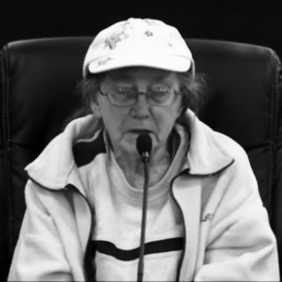 House Finance heard moving testimony from elderly and disabled Rhode Island Public Transit Authority (RIPTA) passengers about the economic burden placed upon them with the proposed abolition of free fares. Representative Scott Slater introduced a bill, H 7937, that would remove RIPTA’s bus “fare adjustments” and restore the free rider program.
House Finance heard moving testimony from elderly and disabled Rhode Island Public Transit Authority (RIPTA) passengers about the economic burden placed upon them with the proposed abolition of free fares. Representative Scott Slater introduced a bill, H 7937, that would remove RIPTA’s bus “fare adjustments” and restore the free rider program.


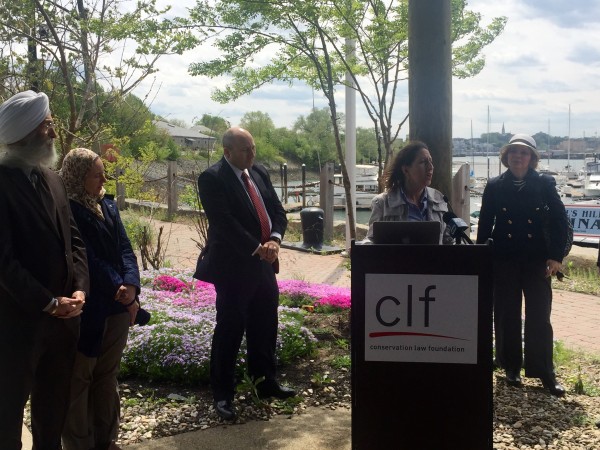 Conservation Law Foundation (CLF) announced at a press conference today that it has served formal notice of a lawsuit against ExxonMobil for its decades-long campaign to discredit climate change and knowingly endanger people and communities. An exposé last September by
Conservation Law Foundation (CLF) announced at a press conference today that it has served formal notice of a lawsuit against ExxonMobil for its decades-long campaign to discredit climate change and knowingly endanger people and communities. An exposé last September by 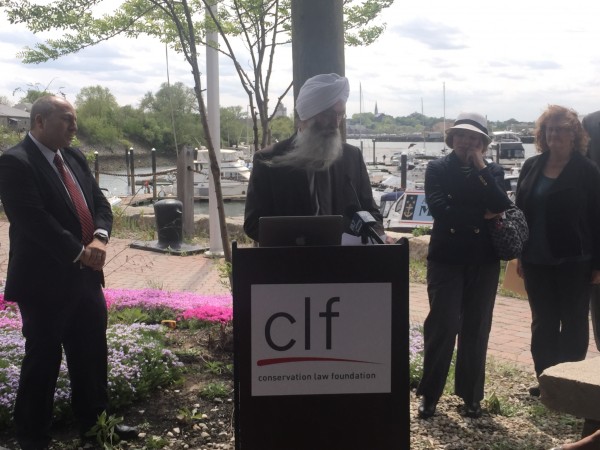 Roseann Bongiovanni, Chelsea Green Space environmental justice advocate, commented, “I’ve lived in Chelsea my entire life, and for all that time there’s been imbalance between community members who desperately want waterfront access and the industries that dominate the water’s edge. A decade ago, ExxonMobil spilled thousands of gallons of oil into our river and denied its wrongdoing for months until confronted and forced to pay by the Department of Justice. Today, we have a greater understanding of the full extent of ExxonMobil’s climate denial and we have another opportunity to show the world that we won’t stand for it.”
Roseann Bongiovanni, Chelsea Green Space environmental justice advocate, commented, “I’ve lived in Chelsea my entire life, and for all that time there’s been imbalance between community members who desperately want waterfront access and the industries that dominate the water’s edge. A decade ago, ExxonMobil spilled thousands of gallons of oil into our river and denied its wrongdoing for months until confronted and forced to pay by the Department of Justice. Today, we have a greater understanding of the full extent of ExxonMobil’s climate denial and we have another opportunity to show the world that we won’t stand for it.”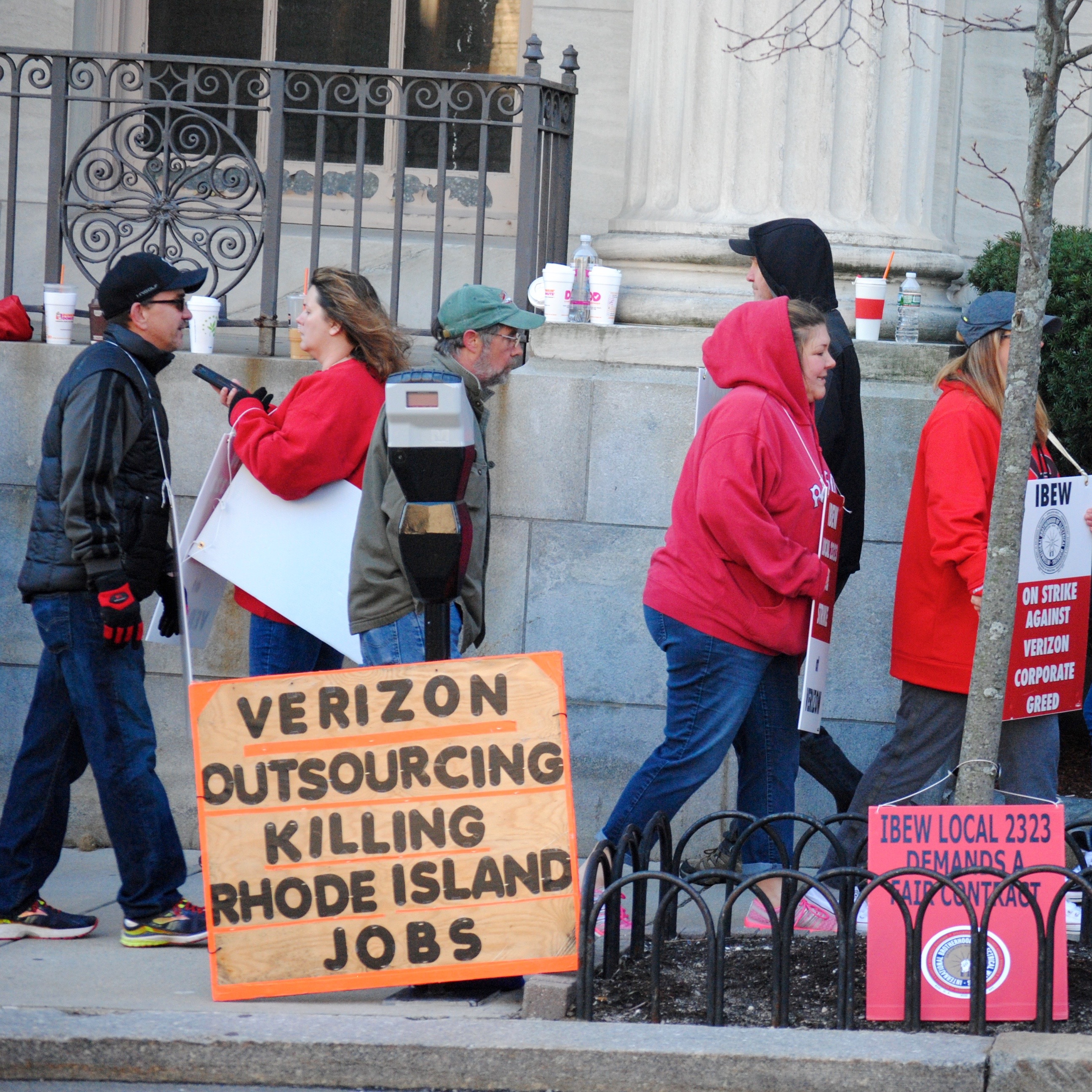
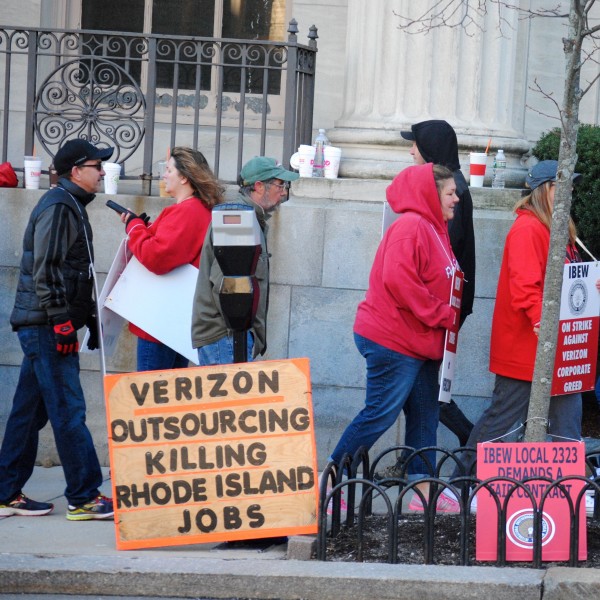 The Sierra Club’s ally the Communications Workers of America (CWA) is currently on strike against Verizon and Verizon Wireless (Verizon) in 9 northeast and mid-Atlantic states, including Rhode Island, after contract negotiations broke down. (The other states are MA, NY, NJ, PA, MD, DE, DC and VA). CWA members have been critical allies to the Sierra Club on issues ranging from democracy to trade to climate disruption. Now it is our turn to stand up for them.
The Sierra Club’s ally the Communications Workers of America (CWA) is currently on strike against Verizon and Verizon Wireless (Verizon) in 9 northeast and mid-Atlantic states, including Rhode Island, after contract negotiations broke down. (The other states are MA, NY, NJ, PA, MD, DE, DC and VA). CWA members have been critical allies to the Sierra Club on issues ranging from democracy to trade to climate disruption. Now it is our turn to stand up for them.

 The following is testimony given before the Senate Labor committee on S2377, the Healthy Workplace Bill.
The following is testimony given before the Senate Labor committee on S2377, the Healthy Workplace Bill.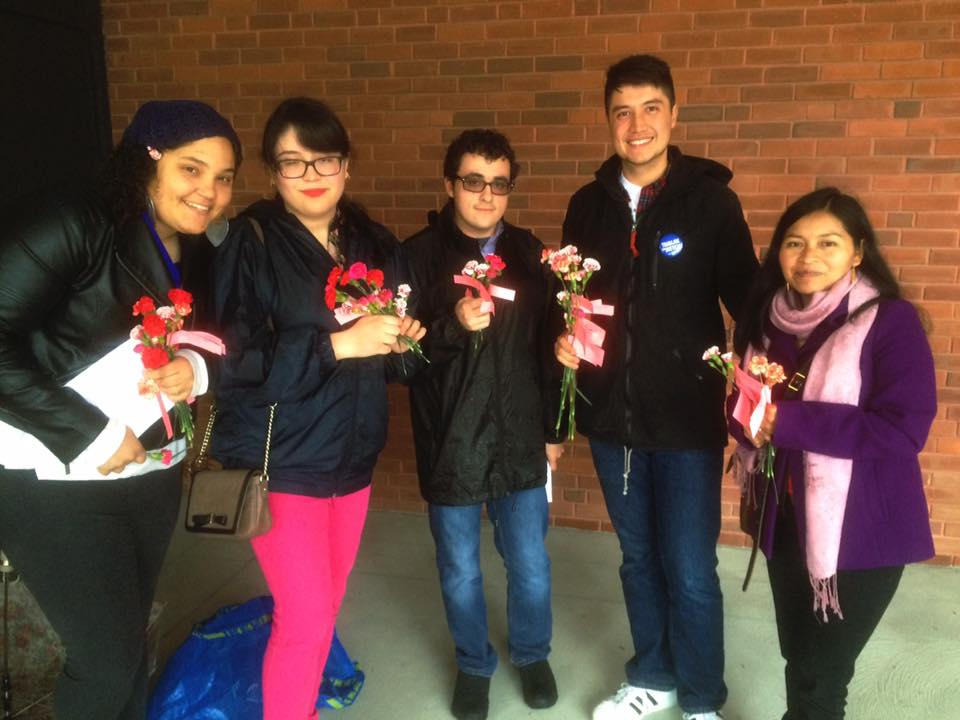
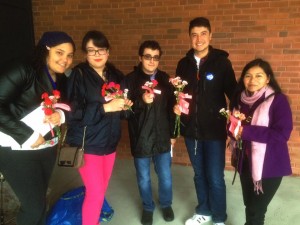
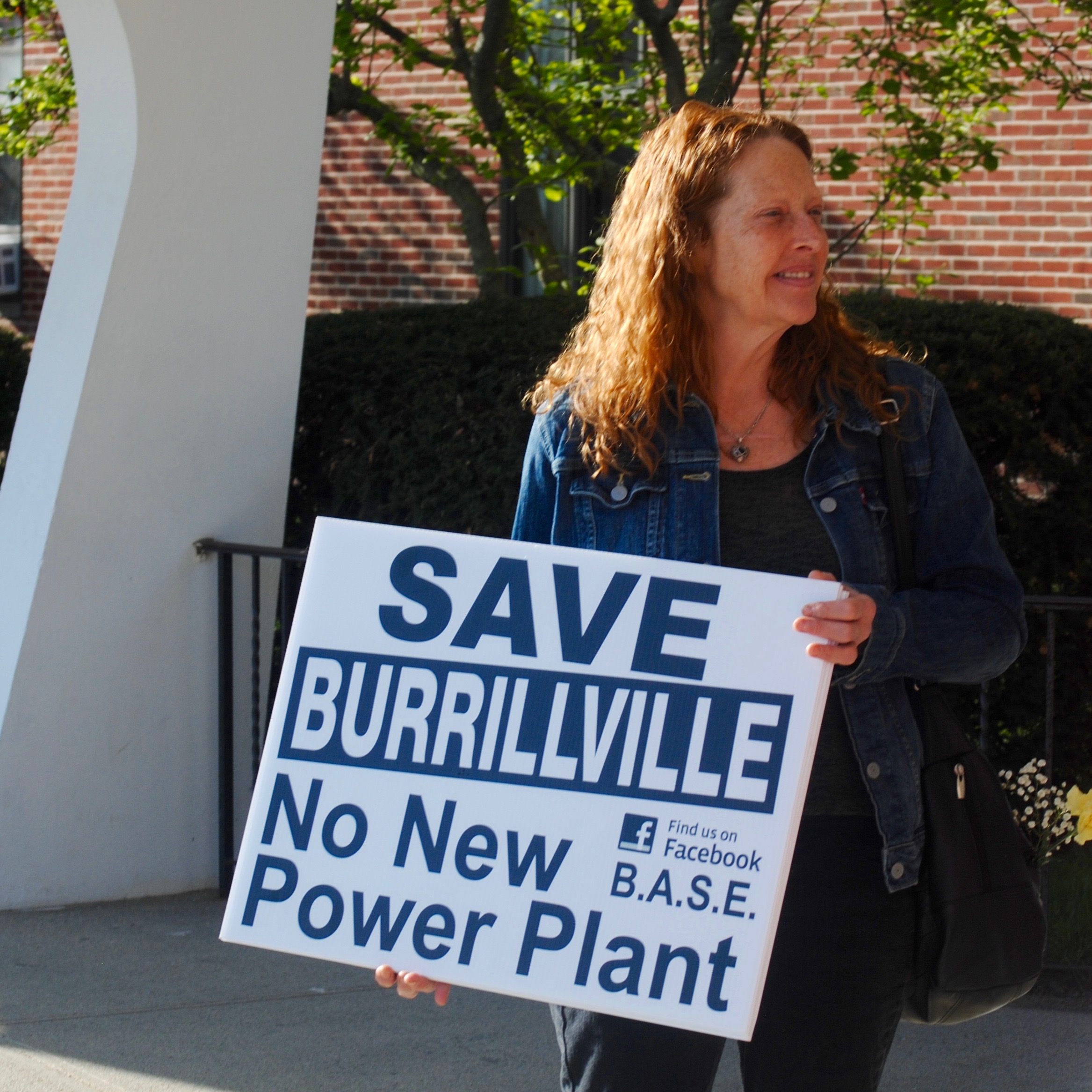
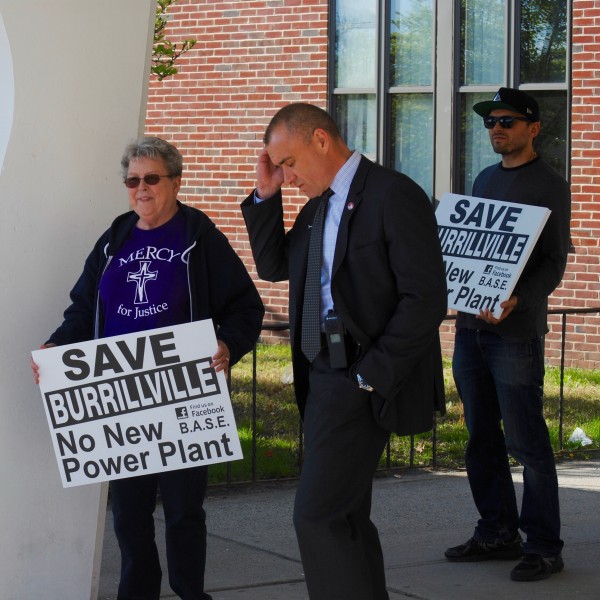 Governor Gina Raimondo agreed to meet with Burrillville residents about the proposed Invenergy power plant Monday evening after Kathy Martley, a Burrillville resident and founder of BASE (Burrillville Against Spectra Expansion) invited her. Raimondo was in Warwick, at the Veterans Memorial High School, as part of her “series of community conversations” around issues of job training. As the question and answer period began, Martley rose to give the Governor a flower and a card and invite her to Burrillville to discuss the power plant.
Governor Gina Raimondo agreed to meet with Burrillville residents about the proposed Invenergy power plant Monday evening after Kathy Martley, a Burrillville resident and founder of BASE (Burrillville Against Spectra Expansion) invited her. Raimondo was in Warwick, at the Veterans Memorial High School, as part of her “series of community conversations” around issues of job training. As the question and answer period began, Martley rose to give the Governor a flower and a card and invite her to Burrillville to discuss the power plant.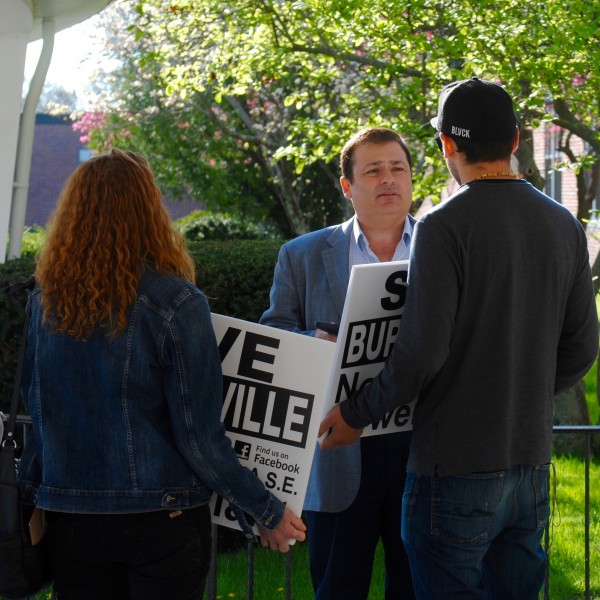

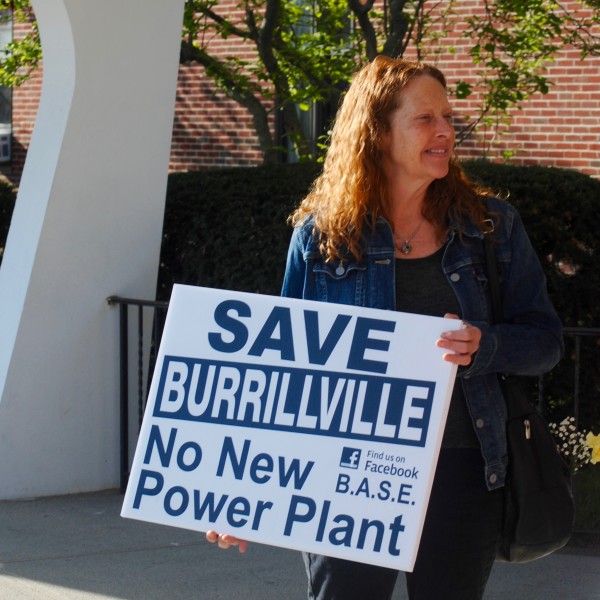
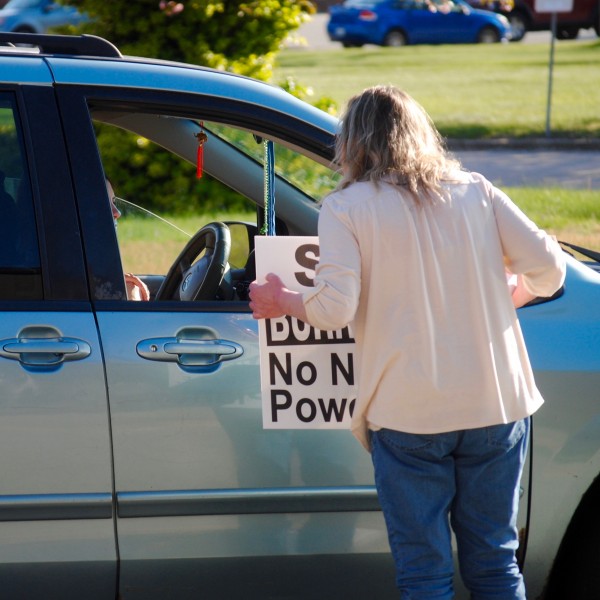
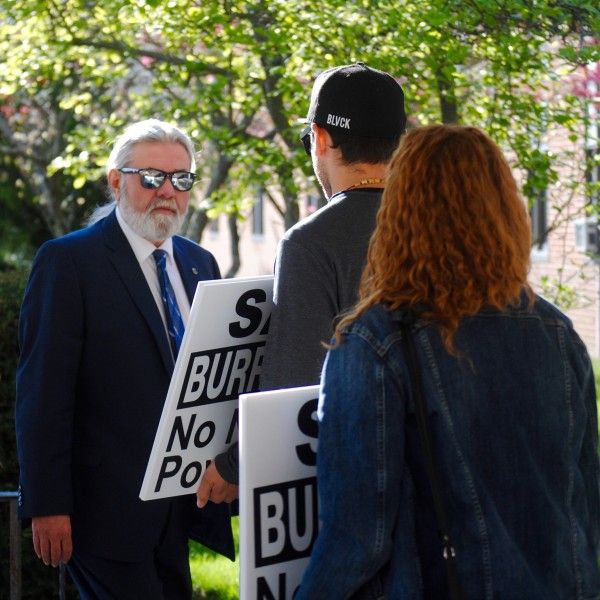

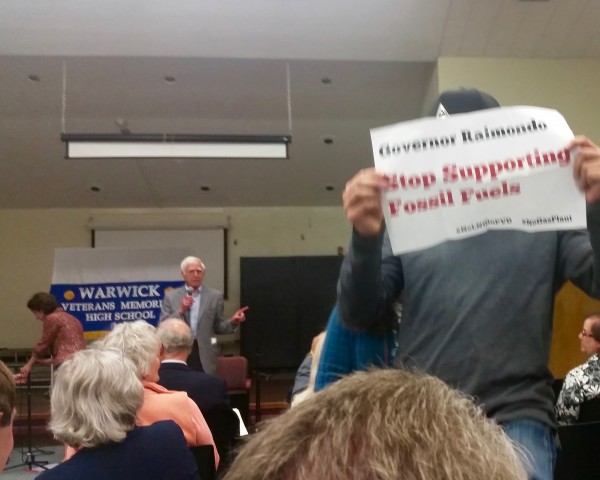

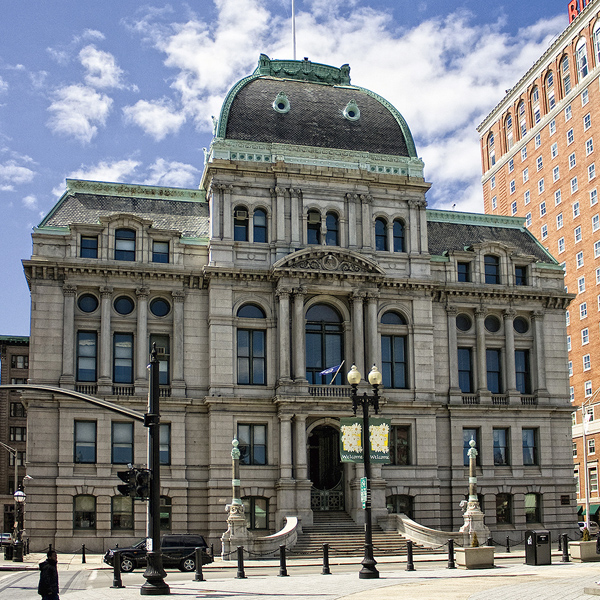
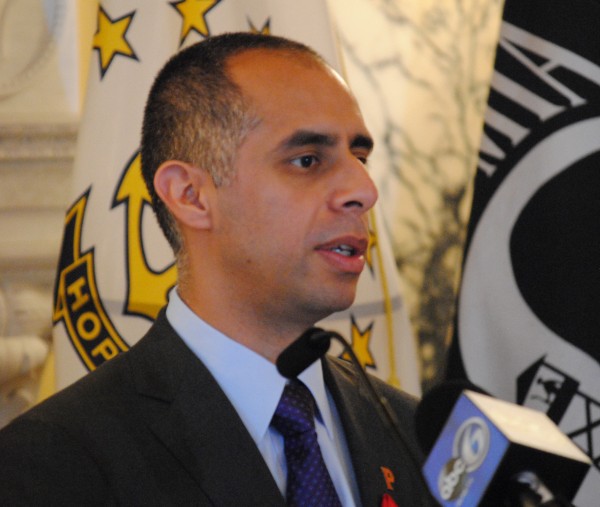
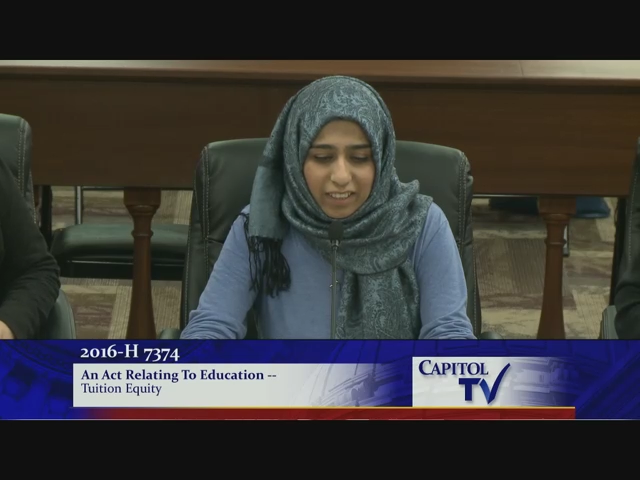
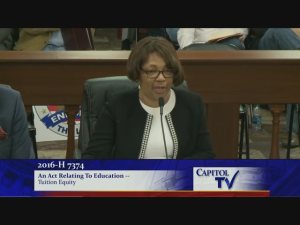
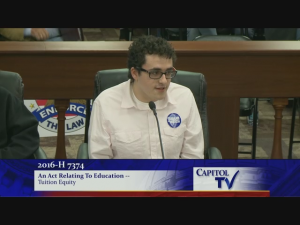
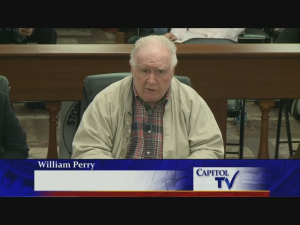
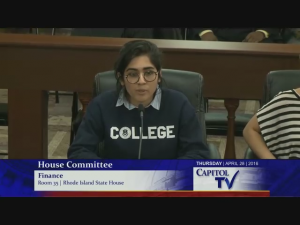
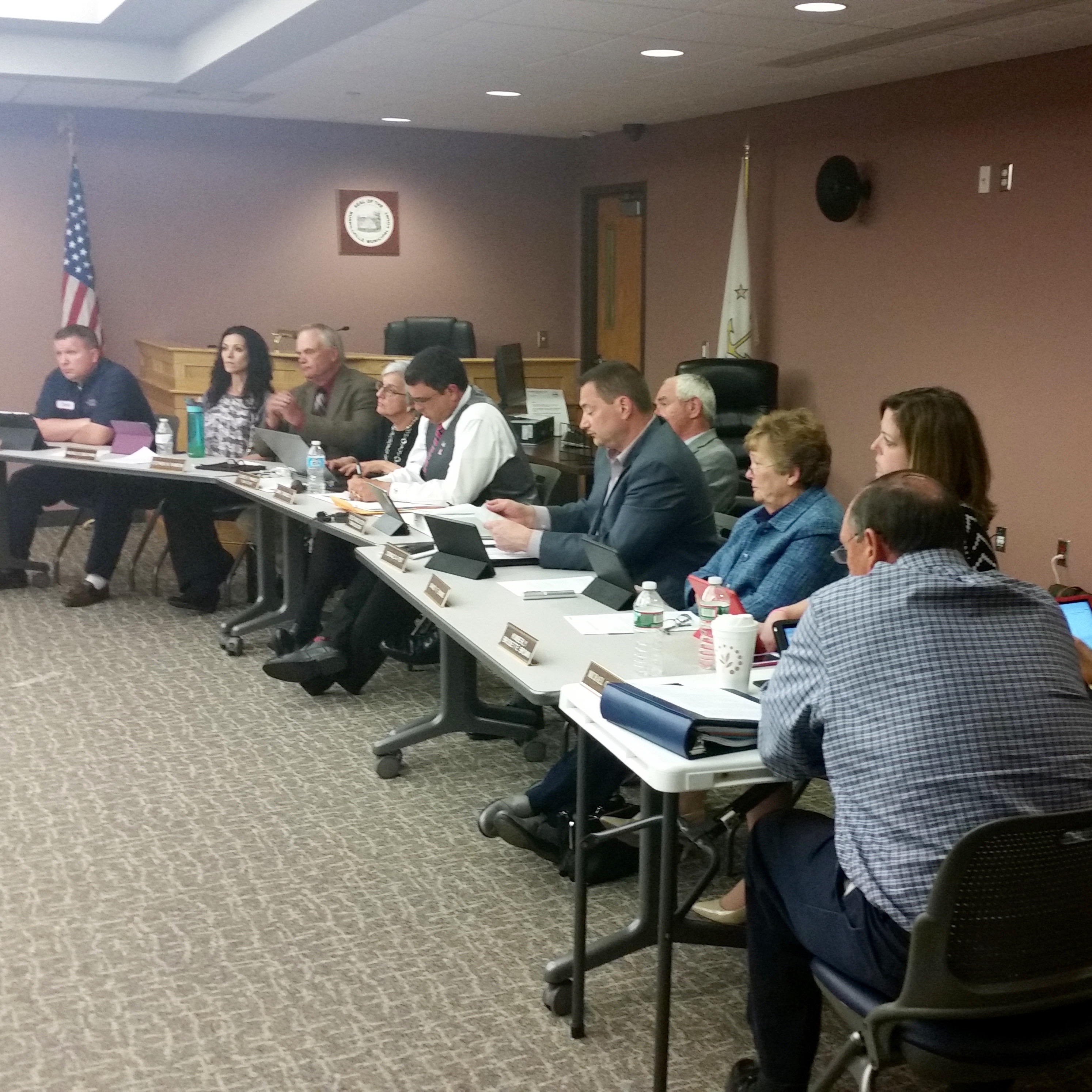
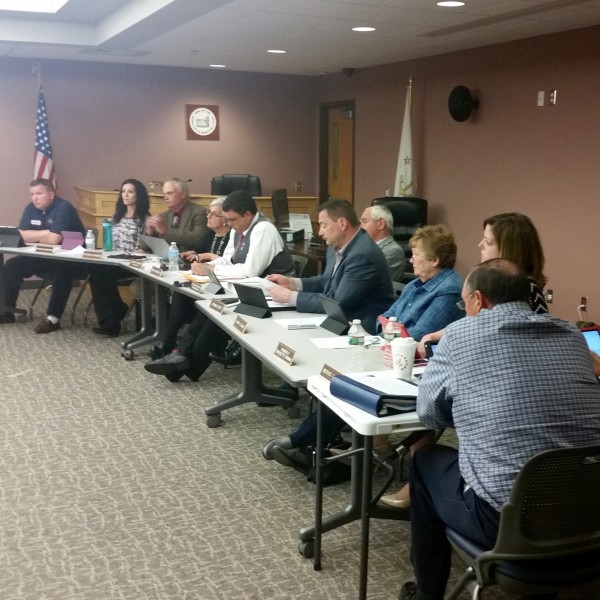 A somber yet unyielding Town Council faced the displeasure of Burrillville residents Wednesday night. At issue is whether or not the residents of Burrillville can trust their elected officials to negotiate in their best interests with Invenergy, a multi-billion dollar company intent on bringing a fracked gas and diesel oil burning power plant to their pristine town. The Town Council appeared to do themselves no favors allowing their lawyer, Oleg Nikolyszyn, to speak for them.
A somber yet unyielding Town Council faced the displeasure of Burrillville residents Wednesday night. At issue is whether or not the residents of Burrillville can trust their elected officials to negotiate in their best interests with Invenergy, a multi-billion dollar company intent on bringing a fracked gas and diesel oil burning power plant to their pristine town. The Town Council appeared to do themselves no favors allowing their lawyer, Oleg Nikolyszyn, to speak for them.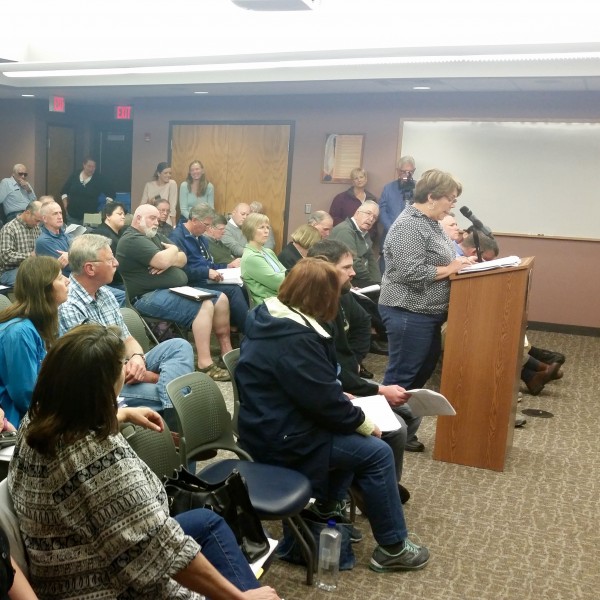 At 10:15 in the video above, Jason Olkowski and Jeremy Bailey ask their questions. The question as to when the negotiations began, why the negotiations were undertaken and who approved them could not be answered, said Nikolyszyn. The details of McElroy’s involvement with the negotiations, and how much he is paid, said Nikolyszyn, is not a public record.
At 10:15 in the video above, Jason Olkowski and Jeremy Bailey ask their questions. The question as to when the negotiations began, why the negotiations were undertaken and who approved them could not be answered, said Nikolyszyn. The details of McElroy’s involvement with the negotiations, and how much he is paid, said Nikolyszyn, is not a public record.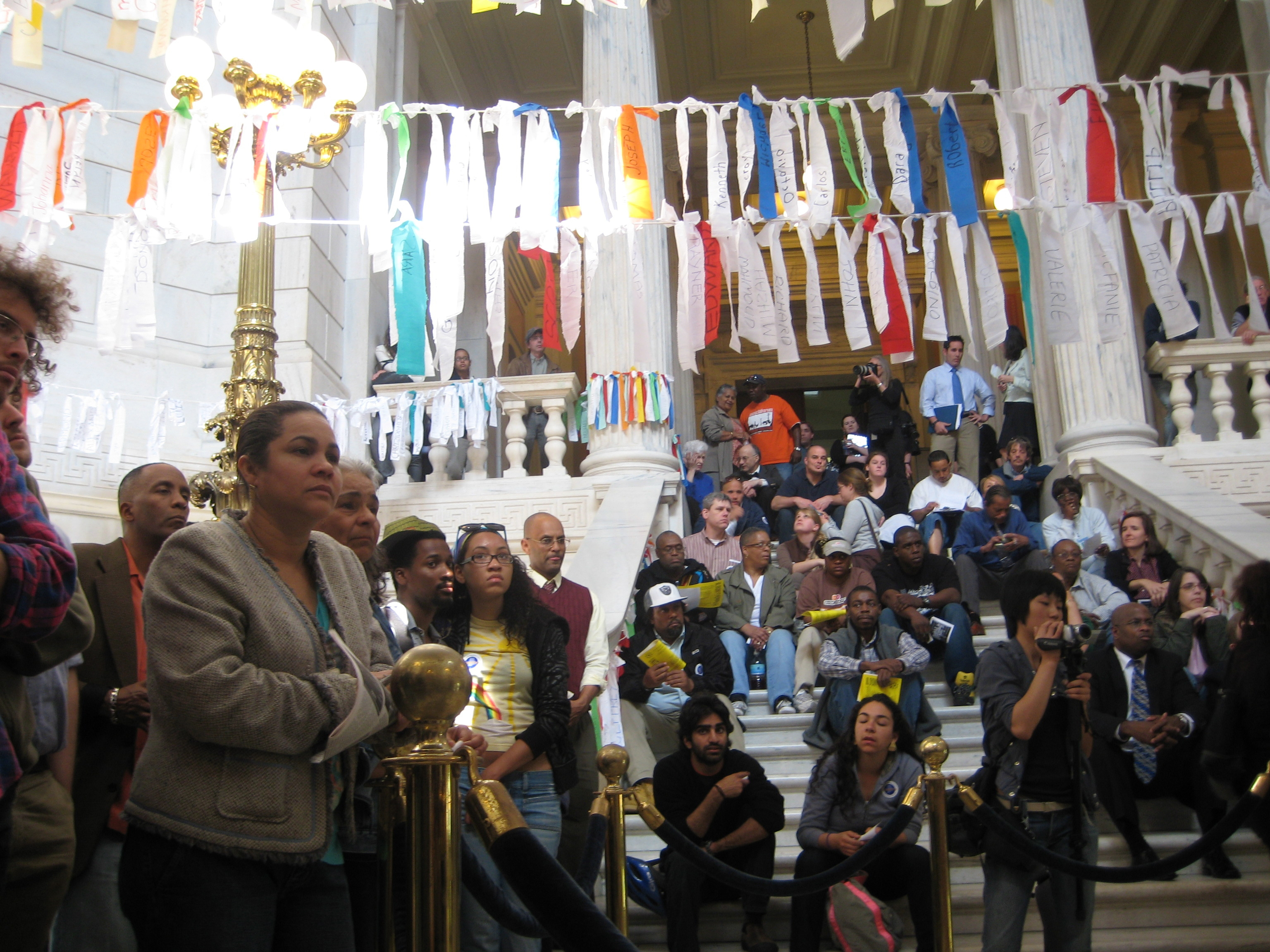
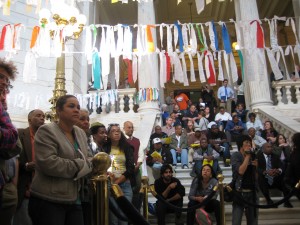
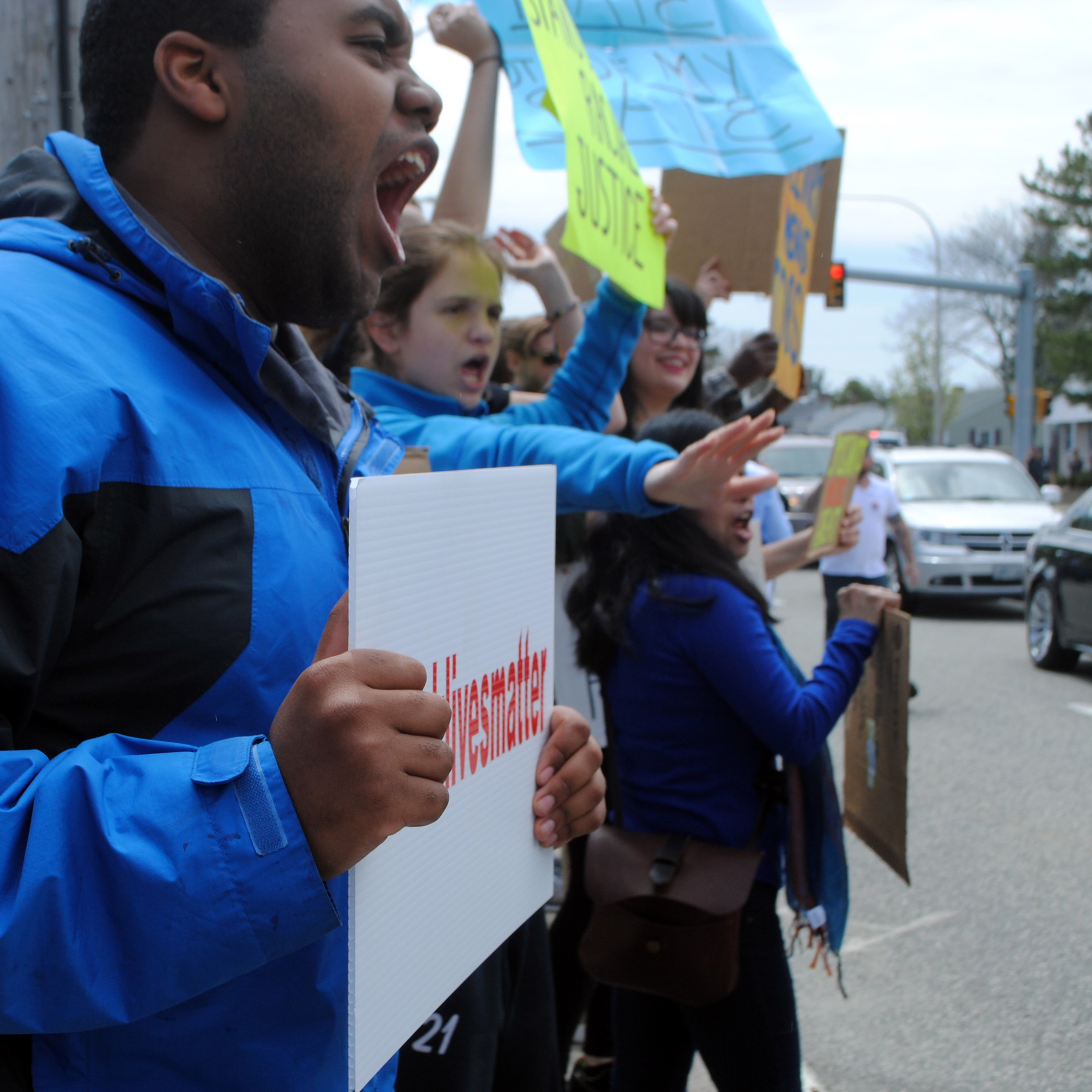
 The best and the worst that Rhode Island has to offer was on display during Republican presidential candidate Donald Trump‘s visit Monday. Members of the White Noise Collective, DARE (Direct Action for Rights and Equality), PrYSM and more came out in opposition to Trump’s message of fear, racism and misogyny. Inside the venue, Trump’s stump speech was interrupted four times by protesters, who were escorted out of the Crown Plaza Hotel without violence.
The best and the worst that Rhode Island has to offer was on display during Republican presidential candidate Donald Trump‘s visit Monday. Members of the White Noise Collective, DARE (Direct Action for Rights and Equality), PrYSM and more came out in opposition to Trump’s message of fear, racism and misogyny. Inside the venue, Trump’s stump speech was interrupted four times by protesters, who were escorted out of the Crown Plaza Hotel without violence.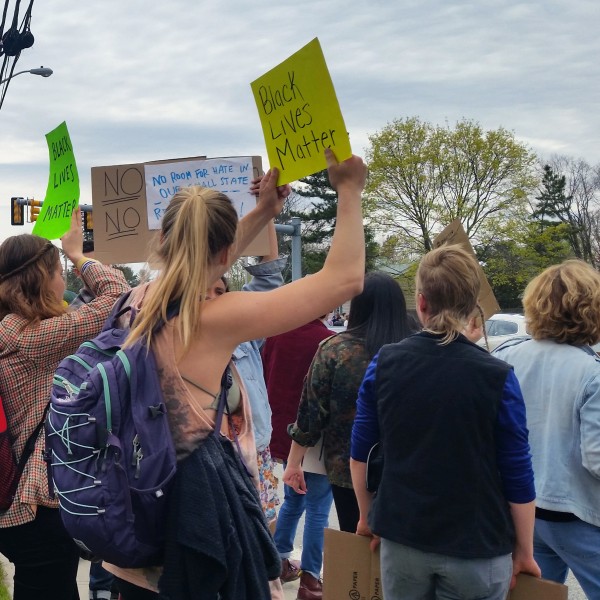
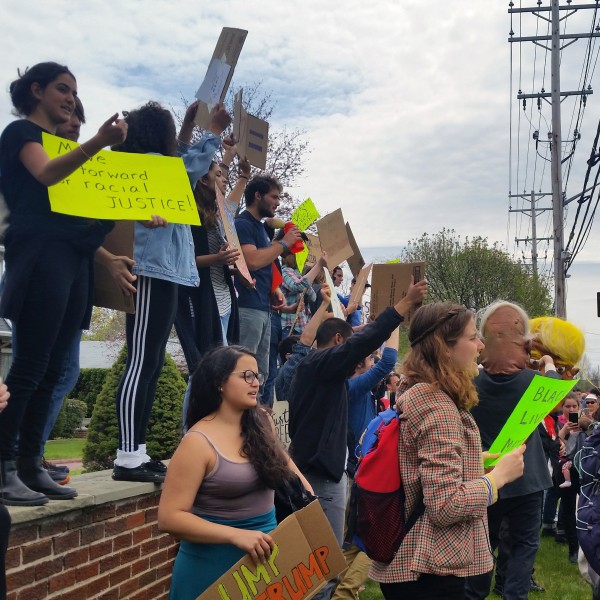



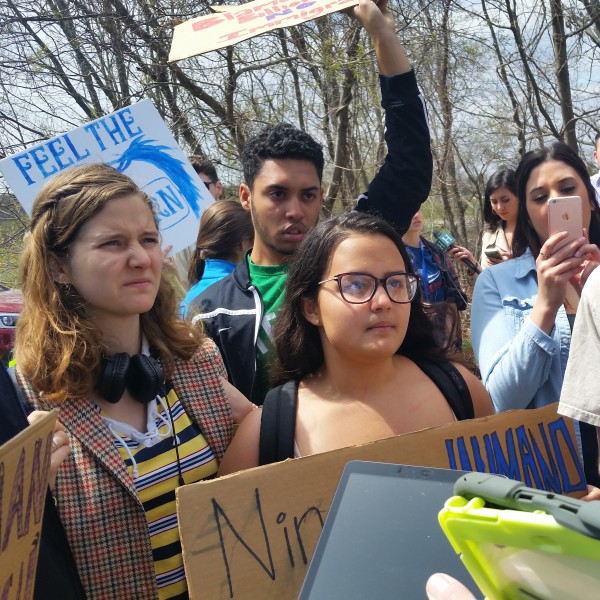
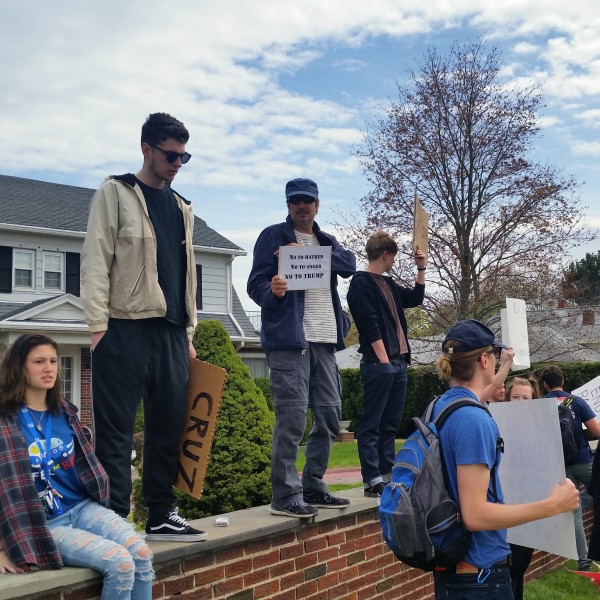
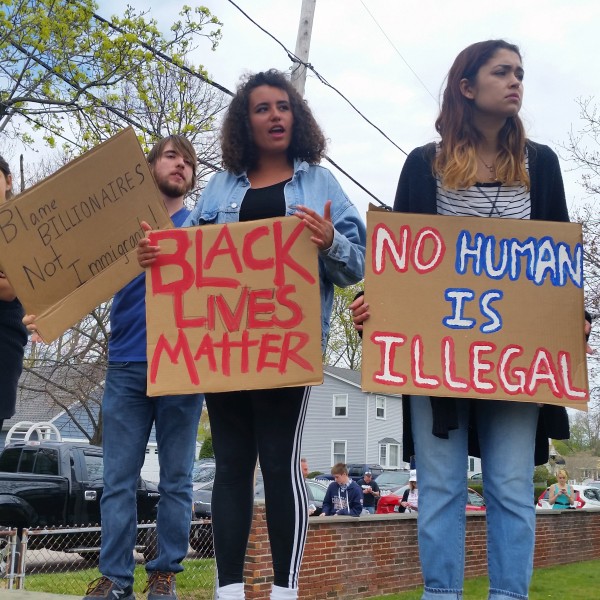
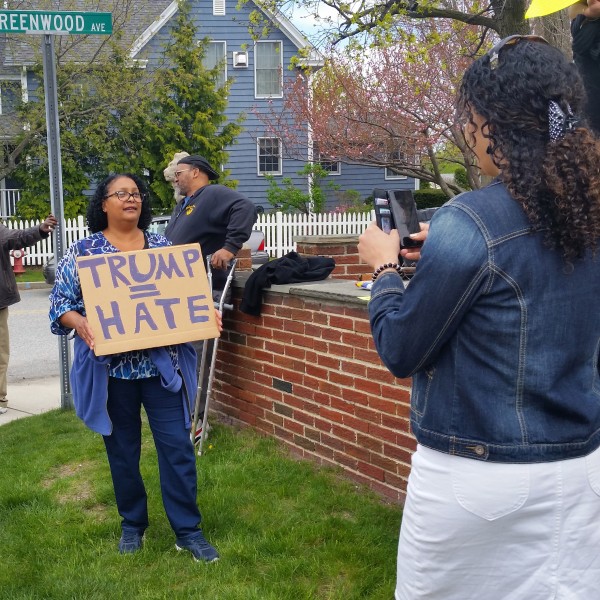











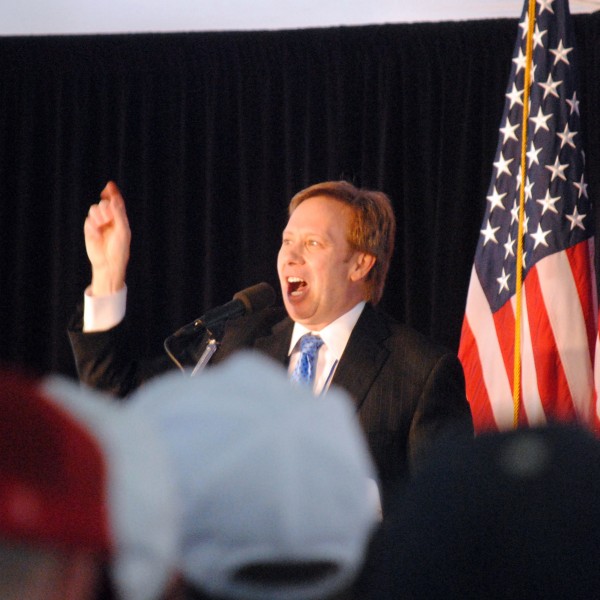





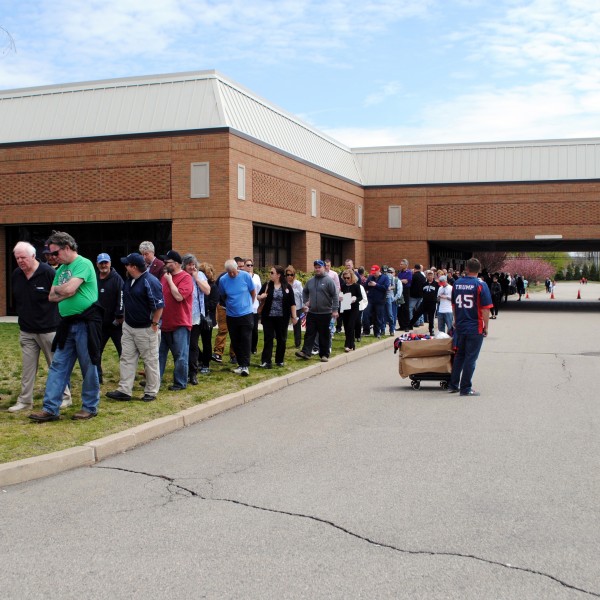

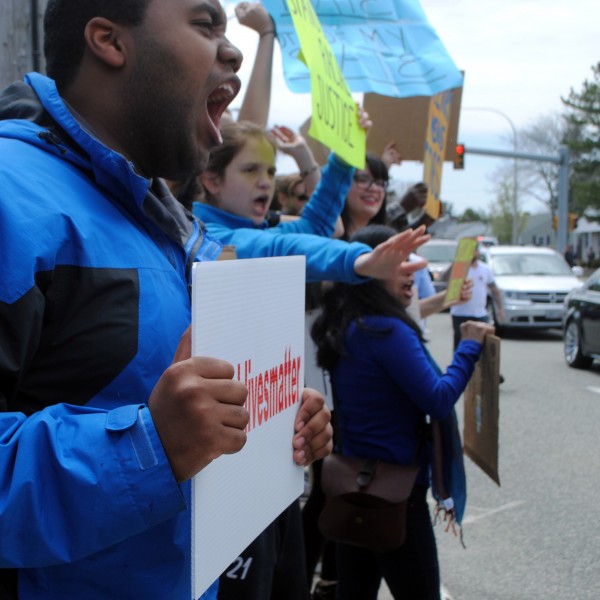




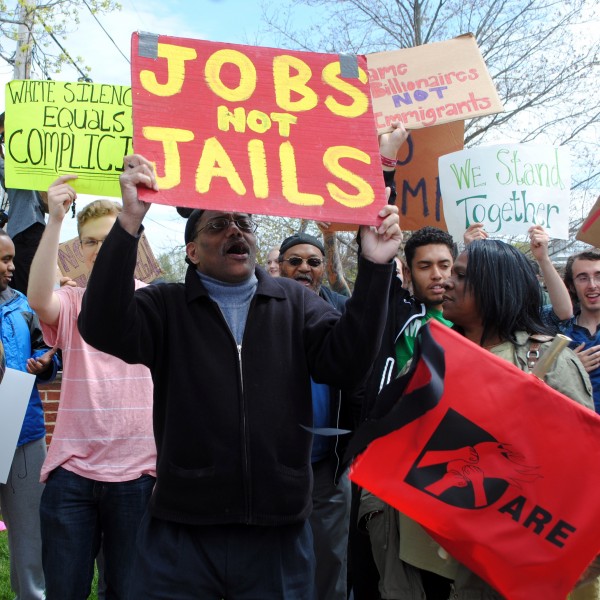


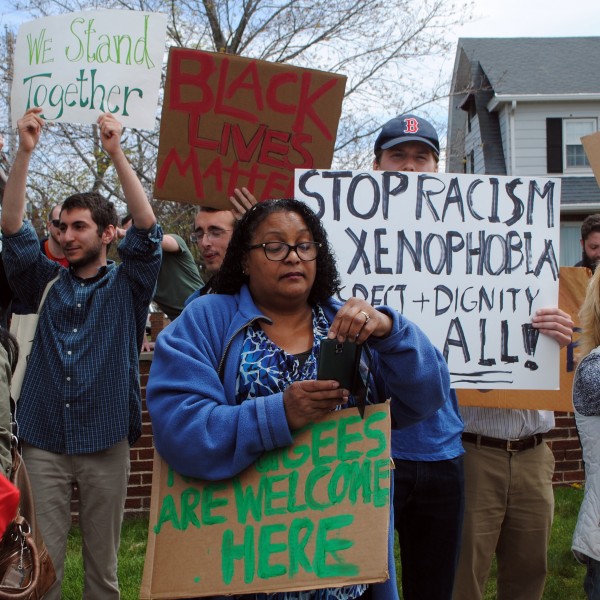
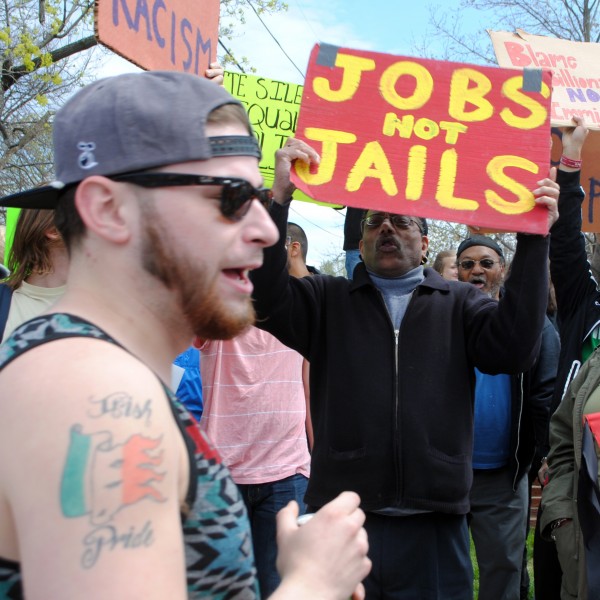
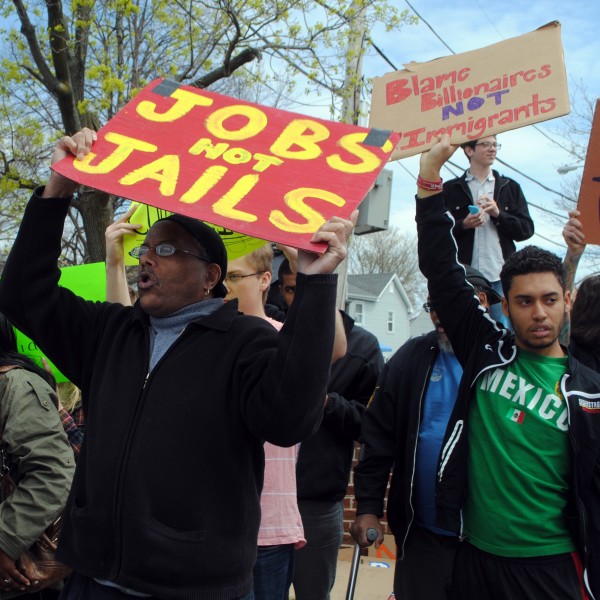


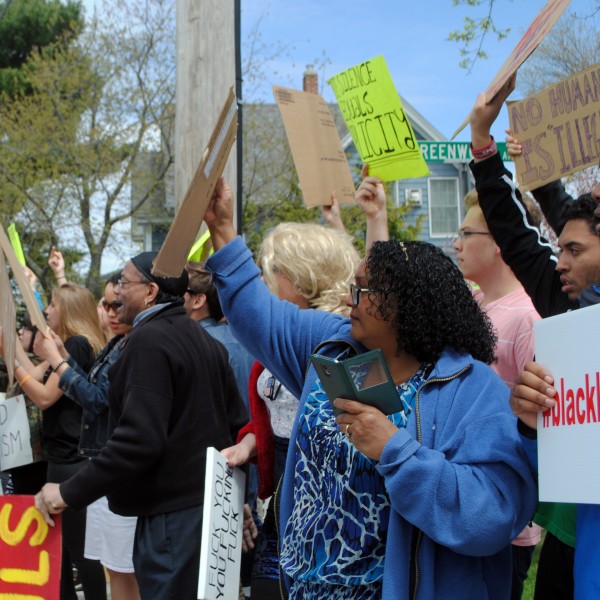

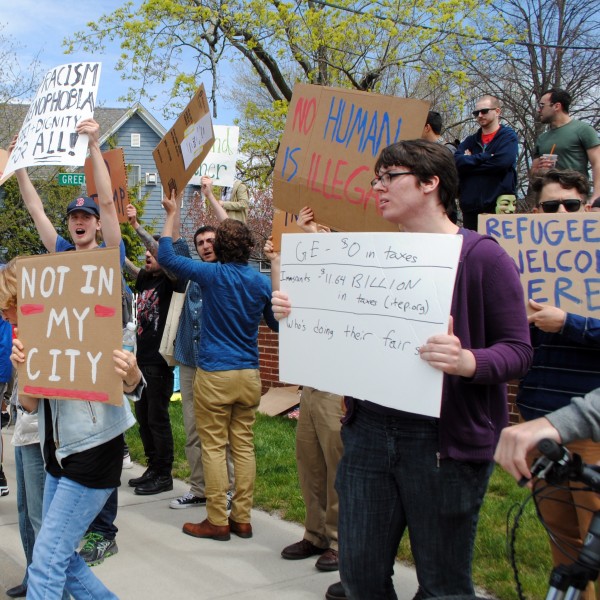
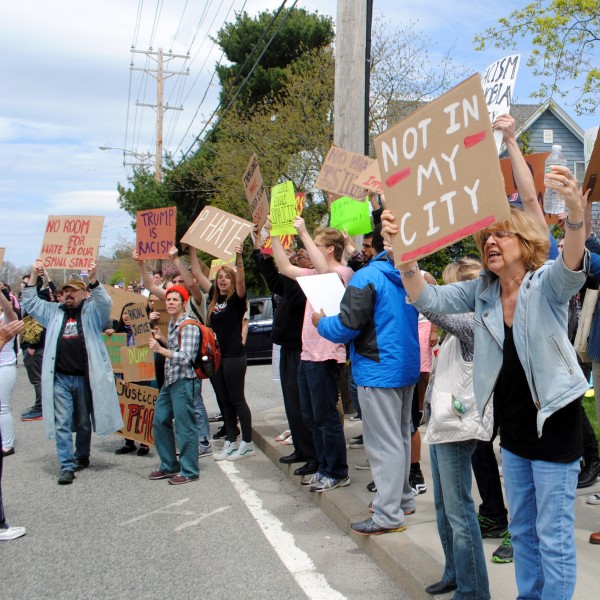

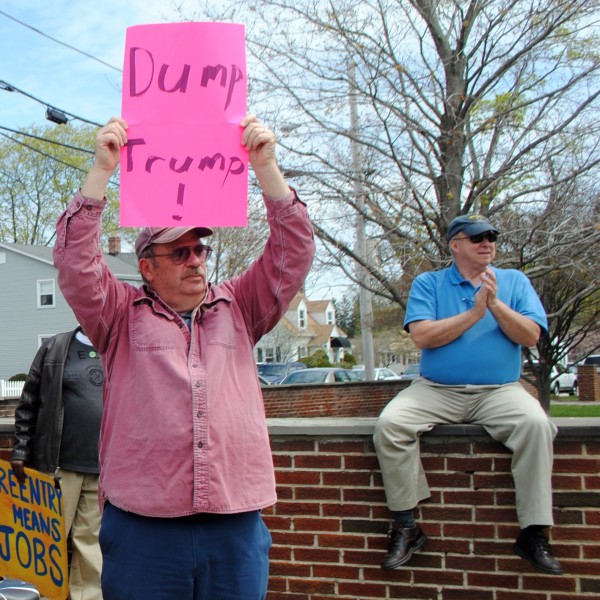
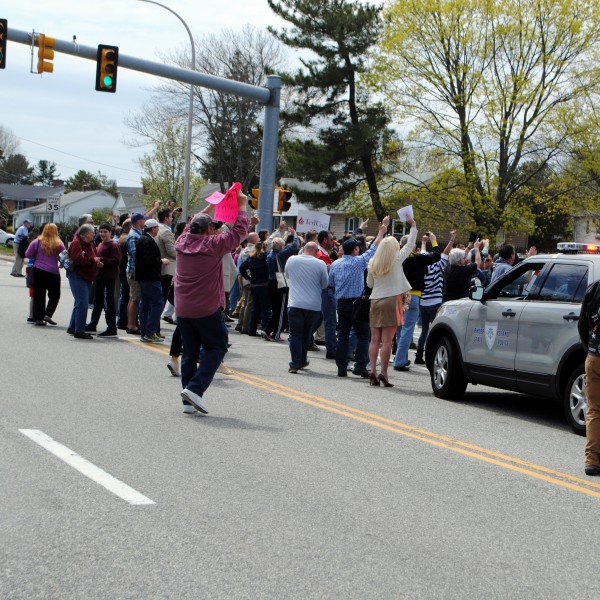
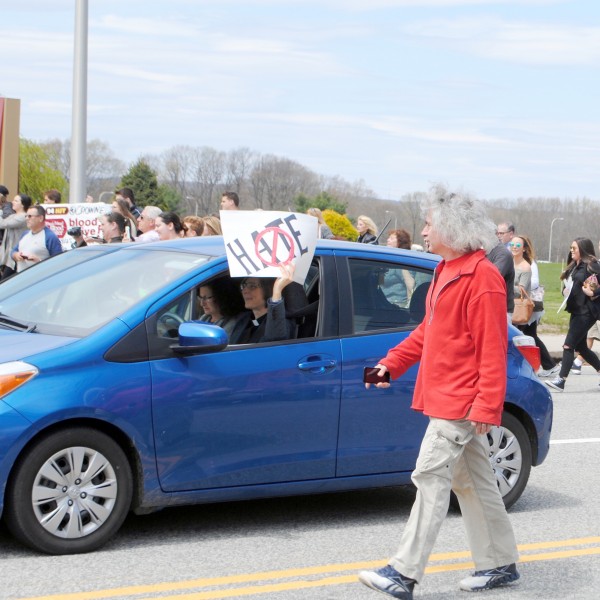
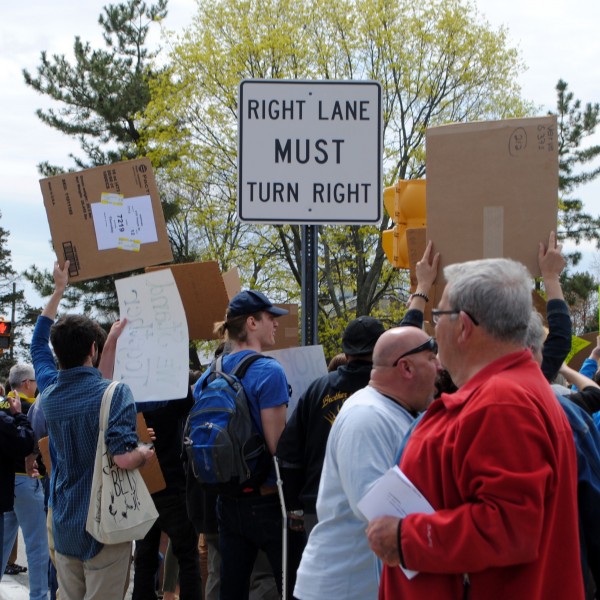
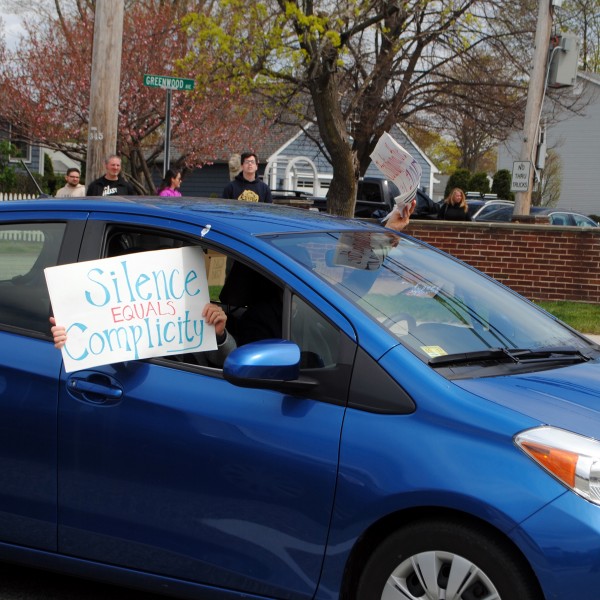

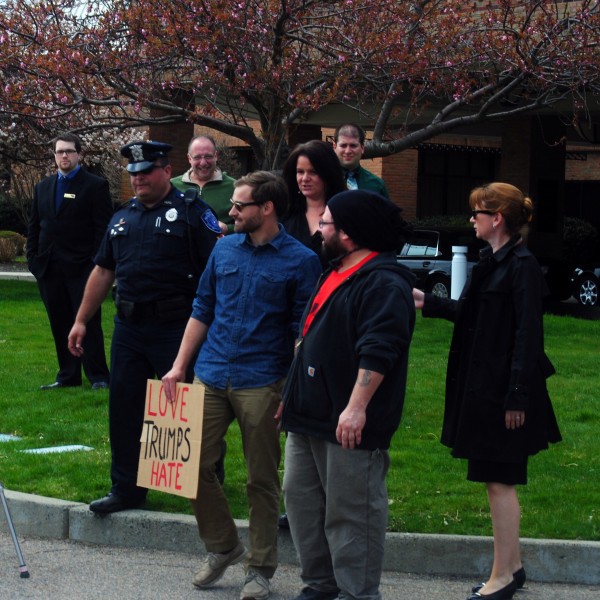

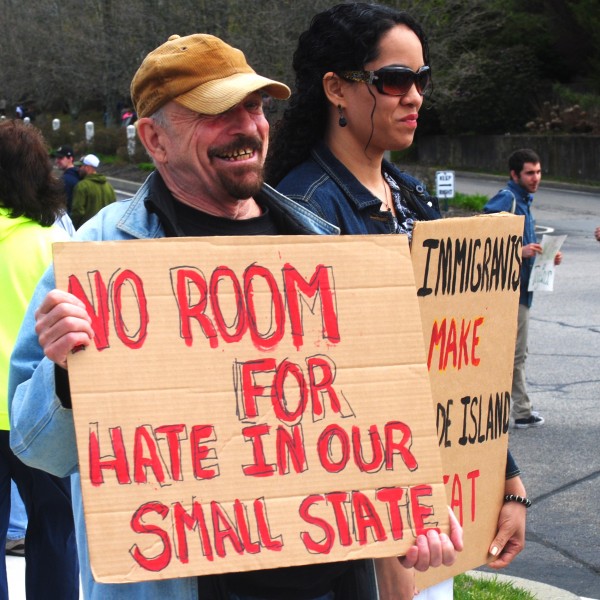







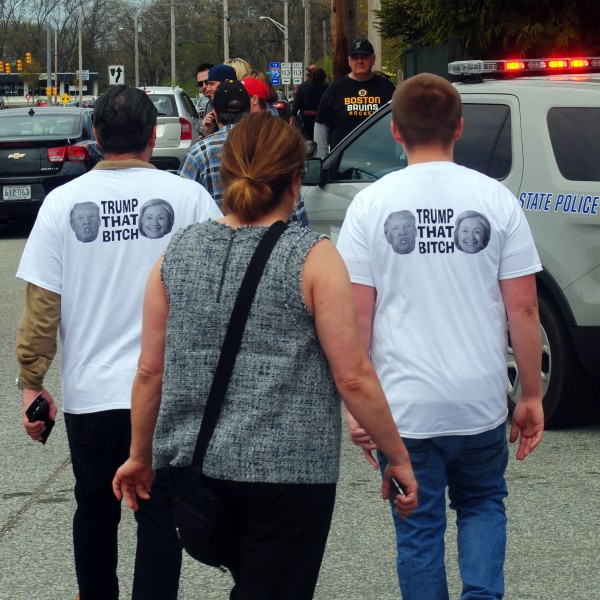






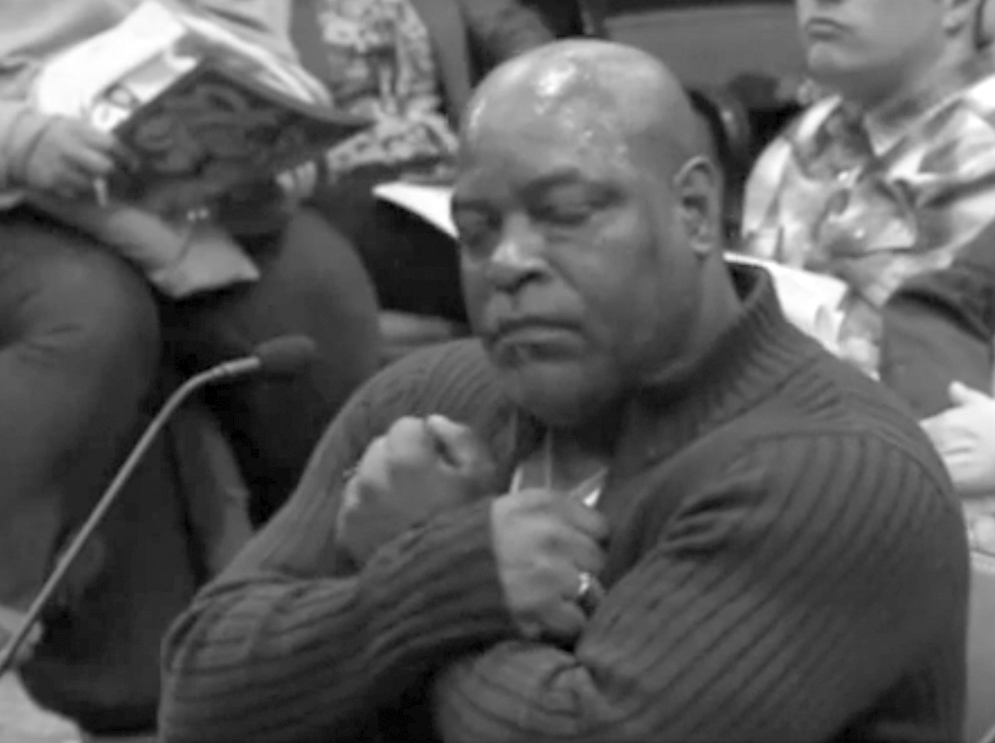
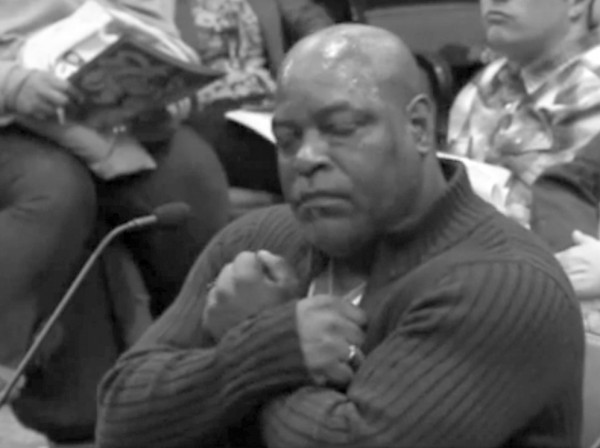 Following President Obama’s executive order limiting solitary confinement in the federal prison system, this disciplinary method has begun receiving greater scrutiny across our country. In the past few months I have heard a range of voices – nationally and locally, from mental health professionals to formerly incarcerated Rhode Islanders – speak out about this practice. As someone who spent over three decades working at the Rhode Island Department of Corrections, I would like to add my perspective.
Following President Obama’s executive order limiting solitary confinement in the federal prison system, this disciplinary method has begun receiving greater scrutiny across our country. In the past few months I have heard a range of voices – nationally and locally, from mental health professionals to formerly incarcerated Rhode Islanders – speak out about this practice. As someone who spent over three decades working at the Rhode Island Department of Corrections, I would like to add my perspective.